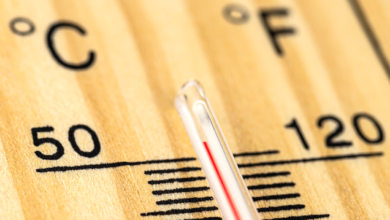Fertilizers and manure will leave 3 billion people without water more than expected

The study on water scarcity appeared in Nature Communications
– Water scarcity could hit 3 billion people more than expected by 2050 worldwide due to nitrogen pollution. A factor that is not considered in UN estimates on water availability in the coming decades.
“While climate change affects water availability, urbanization and agricultural activities have led to increased water demand and pollution, limiting the safe use of water“, explain researchers from the Dutch University of Wageningen and the Potsdam Institute for Climate Research Impact (PIK) who recently published a study on Nature Communications.
The Netherlands and Germany are heavily affected by nitrogen pollution. The Netherlands, in particular, has already drawn up a plan since 2019 to reduce the release of substances that increase it. They are also acting radically, for example with the recent proposal to reduce the number of cattle in the country, on which much of the problem depends. From here the researchers set out to supplement the estimates of global water scarcity with forecasts of increased nitrogen pollution.
If the water shortage triples
When the nitrogen factor is also calculated, the number of river basins with a compromised water quality is threefold. Recalculating those identified as at risk in 2010, in fact, goes from 984 “officers” to 2,517. And in perspective, looking at 2050, the number could rise to 3,061. With an overall impact on 6.8-7.8 billion people worldwide, that is about 3 billion more than estimates that consider only the factor of the amount of available water.
“In the worst case scenario (SSP5-RCP8p5), it is estimated that the hot spots of the clean water shortage cover 48% of the total drainage area, compared to 32% in 2010, and with 91% of the total world population living there, compared to 80% in 2010,” reads the study. The increase is mainly linked to nitrogen concentrations from fertilisers and manure, directly linked to agricultural and livestock activities.
Even in the most optimistic scenarios, the study concludes that nitrogen pollution levels will still remain “substantial” in the mid-century. But they can take improvement measures. “The deterioration of access to water can be stopped, and to some extent reversed, by adopting a more efficient use of fertilisers, as well as more vegetarian diets and linking a larger percentage of the world’s population to treatment plants of water”explain the authors.





